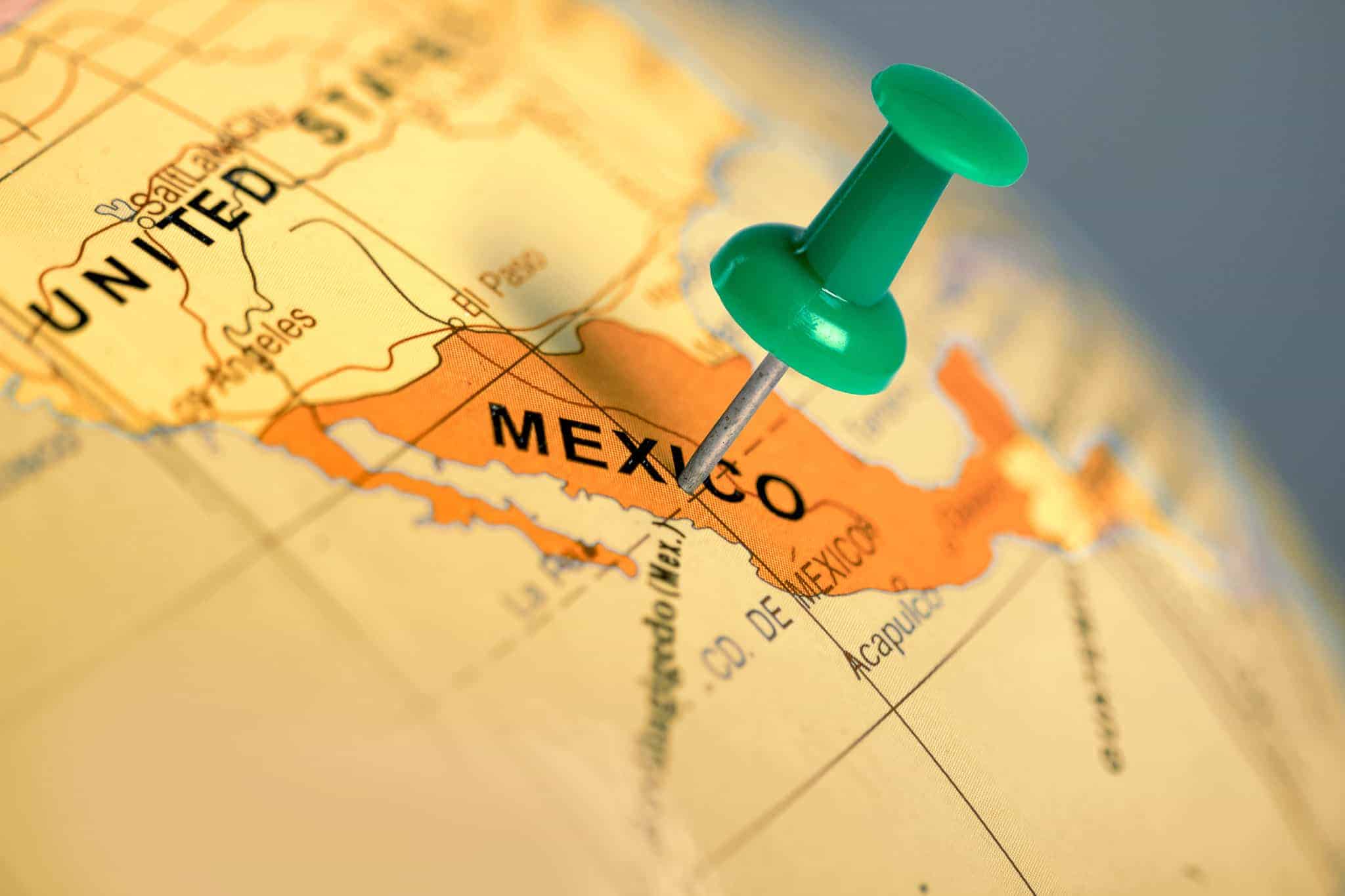
January 11, 2023
Life changed for Benjamín Santa María in 2022. He is the founder and CEO of Reversso, a startup that solves the difficult issue of returns in e-commerce, and in the middle of last year, they made the leap from Chile to Mexico.
“The energy of entrepreneurship in Mexico is so impressive that one says: how come I didn’t come here before?” asks Benjamín from his home in the Roma Norte neighborhood. “It’s a country that welcomes foreigners like no other. The level of warmth of the people makes you feel very much at home, especially if you are Latin American. That was very good because leaving the country, going to a new place, generates fear.”

Benjamín Santa María, CEO and co-founder of Reversso (Photo: Reversso).
In addition, Benjamín has found a thriving entrepreneurial community in Mexico City, the number one Spanish-speaking city for startups in the region and the heart of a country where foreign founders have raised $1.72 billion in capital over the past decade. “The entrepreneurial community is impressive because here are the founders of the best tech companies in Latin America,” says Reverso’s CEO. “The same entrepreneurs you saw in webinars or listened to in podcasts are the ones that welcome you, help you connect, and clear obstacles. That’s when you see that these great entrepreneurs are also great people”.
First obstacle: the paperwork
Setting up in Mexico is not just about opening an office and hiring a handful of employees. The challenge is enormous; perhaps the biggest obstacle is understanding legal regulations.
“In our experience, if you are going to expand your business in Mexico, it is vital to do it with a Mexican partner,” says Jimena Pardo, partner at ALLVP, a Mexican VC that supports startups with potential in the country.
For Jimena, herself Mexican, there are challenging aspects to navigate if you don’t have a Mexican partner. One of them is the law: “Our labor law is super aggressive, much more so than in the rest of Latin America. In Mexico, firing someone is very expensive, and sometimes some startups have to keep their people for a long time because they don’t have the money to pay severance”.
The fintech law was recently enacted in the country, which regulates the services provided by financial technology institutions and their organization, operation, and functioning. “Knowing this complex law and the context in which it operates is very important for these types of startups that might want to make the leap to Mexico. If you don’t have that reliable Mexican partner, it is very easy to get lost,” he explains.

Jimena Pardo, ALLVP partner. (Photo: ALLVP)
Rogelio Rea, also Mexican, founder of the successful startup Atrato and today a visiting partner at Platanus Ventures, adds another ingredient: bureaucracy. “Everything takes longer than in almost any other place in Latin America. It is curious because it is a great market, a great country, and very friendly for startups, but it is very slow in governmental terms. Just opening the company and the bank account will take you three months if everything goes well. That is an issue many founders are not ready for,” he says.
Based on this, Rogelio advises startups arriving in Mexico that at least one founder should move to the country. “Founders have the particularity of having the biggest incentive to make the business work,” he says. “They have the final judgment to make relevant product and team decisions. When they talk to users directly, they get to soak in what this reality is like and their timelines. It tends to be an extremely valuable and important exercise to be able better to understand the needs of the market and the team.”
Jimena Pardo agrees: “What I have seen work is that the founder or at least one of the founders comes to live in Mexico. We saw that with Cornershop and Fintual, for example,” she says, referring to two startups on which ALLVP bet early. “Having already won the Chilean market, they grabbed their suitcases and families and came to Mexico to understand the culture and with the mindset that they would need help here. If the entrepreneur is here, he realizes what needs to happen to make everything work faster. No country manager can beat an entrepreneur, that’s for sure.”
Mendel, the Argentine corporate expense management startup, followed this advice. “One of our co-founders is in Mexico,” says Alejandro Zecler, co-founder, who emphasizes the importance of being strong in the first years of expansion. “A startup is not for everyone. It’s a roller coaster,” he says, adding that in the adventure, it is key to have a good team that works hand in hand with the co-founders.”
The biggest challenge: becoming a bit Mexican.
Something that ends up being very relevant for success in Mexico, although perhaps less attention is paid to it, is understanding the local culture and getting involved.
Rogelio Rea gives an example: “Mexicans have a hard time saying no, and at the same time, we talk a lot. What I mean by this: if you are selling, it is often frustrating and confusing because the Mexican will not say no to you directly. Then you assume that the deal is still alive, that it is still possible to close it. That impacts and frustrates foreigners. People don’t get straight to the point, and that’s exasperating. In many cases, closing deals involves going to lunch and having a beer. These things that seem meaningless are important for Mexicans, to gain confidence, to understand and get to know you better”.

Rogelio Rea, visiting partner of Platanus Ventures. (Photo: Rogelio Rea)
What Rea describes was almost exactly what they experienced at Mendel. “Mexicans like to get to know you, eat, drink, generate a bond and then be able to close business deals. I had to understand that they don’t go straight to the point. To achieve this, I think it was very important to listen to the advice and counsel of the local team,” says Alejandro Zecler.
Speaking of the local team, this issue also presents challenges. Rogelio Rea explains that the talent search has become more complex as Mexico is an increasingly attractive space for startups. Competition among startups has made talent coveted and scarce, especially in the product and engineering areas. “It’s a dynamic in which it’s difficult for many founders to maneuver,” says Rea.
According to an Endeavor study published in 2021, in Mexico City alone, foreign entrepreneurs account for 31% of all technology companies that have raised venture capital.
What solution did they find at Mendel? “There is a learning curve to understand where to find that talent,” says Zecler, “We had to iterate quite a bit to find the right talent. In the tech world, the most important thing is to have a place, a network where you know where to get the best talent. We opted to leave the entire technology team in Argentina, where we already had a background and knew how to get the talent. The operations team, on the other hand, we felt that they should be in Mexico because they are the ones on the battlefield, and they need to understand the country better”.
The right time is now
Knowing all this and considering the world’s economic situation, is it a good idea to open in Mexico today? For Rogelio Rea, there is no doubt: “The sooner it is possible to go to Mexico, the better because by being early, you will have the space to start to mature and work it out over time. I think it’s definitely a good time. Of all the countries in Latin America, Mexico has been an exceptional case of stability and friendliness to attract companies”.
Jimena from ALLVP has a similar opinion: “It is a fact that regardless of where you start in Latin America, except for Brazil, the next market you should go to is Mexico, mostly as a matter of size. So whether you are starting up in Santiago, Buenos Aires, or Bogota, your next market and the one that will really give you scale is Mexico, which has 130 million inhabitants”.
Alejandro Zecler recalls that after six months of living in Mexico, he sized up the proportions of the Mexican market. There was only one phrase in his head: “Why did I waste my time in the other countries?” The question is telling because, ultimately, Mexico has a market similar to that of all the other South American countries combined (not counting Brazil).
“I first learned that it’s a very interesting place to start. You have a single, very large market, a single corporate name, and employees and collaborators in one place instead of having them spread out in different countries,” he says.

Alejandro Zecler, co-founder of Mendel (Photo: Mendel).
Reverso continues to grow in Mexico. Its Chilean CEO is happy and optimistic about the traction of the business because, after six months, he feels increasingly immersed in the Mexican culture: “As much as you might think we are similar, the culture is very different”, reflects Santa María. “I am just now understanding the message that goes between the lines of what a Mexican was communicating to me. I now understand the cultural codes needed to navigate this market.”
Although Benjamin says that he is not one to give advice, he does share a practice that is working for him to speed up that cultural process: talk to someone in the industry or an entrepreneur once a week, ideally in person. “That pushes you to get out there and understand everything from how to cross the street to bigger issues like the impressive service ethic that Mexicans have. Outside of business, I do this same thing but at the next level: traveling around the interior, visiting towns. As is usual, people in the cities are more globalized and cosmopolitan, but in the towns, one can understand Mexico much better.”
You may also be interested in: Bootstrapping, the Approach Adopted by Many Startups That Is Vindicated During Financial Crises

Por Stiven Cartagena
September 15, 2025